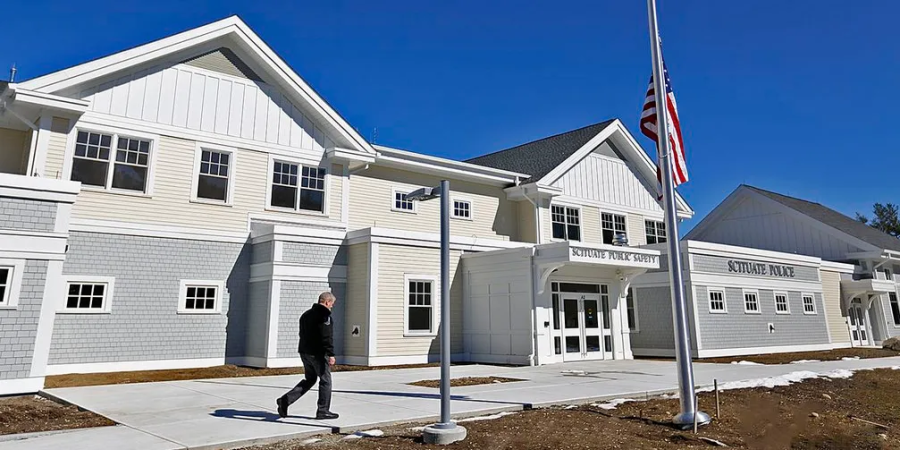Scituate Safety Personnel Trained to Respond to Mental Health Calls
December 8, 2022
On Tuesday, October 25, during H block and G block, Scituate police officer Drew Kitchen informed students that 60% of the emergent calls to 911 in Scituate are mental health related. SHS English teacher Catherine Hall reported that she had never seen so many jaws on the floor from one single sentence, after witnessing reactions from students.
To clarify Kitchen’s remarks, Chief of Police Mark Thompson said the majority of calls have “mental health embedded in them,” but the calls are not always crisis-based. Of the roughly 20,000 calls 911 receives each year in town, 3% are mental health associated emergencies. Chief Thompson further explained that the police department involuntarily sends someone to the hospital between four and six times a month.
“I think that mental health calls have always been an aspect of what we’ve done. I think over the past five years plus, I think that there’s been a greater focus put on it and maybe just more of within society it’s destigmatized a bit,” suggested Thompson.
SHS adjustment counselor Jennifer Lopes spends hundreds of hours working with students every year. She agrees that “there’s less stigma around reaching out for help,” which allows for many to stay safe around Scituate. Reaching out for help can become complicated when taxed with stress, but at SHS there are many resources available for everyone, whether it is staff or students. Common stressors may include isolation from the Covid-19 virus, school and related anxieties, social media, personal relationships, financial situations, and more. All of these factors can be intense to experience, so SHS students should not hesitate to ask for help with any hardships they may be experiencing.
Police officers and other professionals work around the clock to provide a sense of security and are equipped with measures that they might need to accommodate.
Scituate police officers receive specific training to account for mental health in today’s society. SPS Resource Officer Nicholas Sharry said he “used to go in person to training facilities, sit in the classroom, and do different training about what’s going on in the world, but in the past couple years it’s been heavily focused on mental health training and how to respond.” He also noted that he had “gone to probably a week’s worth of training on strictly adolescent mental health, which is the same concept but just working within a school” to become more familiar with situations he may encounter while working with the school population.
Furthermore, police dispatchers–who communicate, receive, and transmit information–“receive specific training,” explained Thompson. After determining the severity of a call, dispatchers can decide that it may not be strictly a police response. Generally, they will stage fire departments so they’re ready to jump into things, too, he reported. All of the safety personnel are integral to safety protocols in Scituate.
Regardless of the statistics, it is important that everyone stays safe and healthy and maintains mental well-being. According to SHS guidance counselor Rosalind Kimani, if you or anyone you know is struggling, “depending on the magnitude of the struggle,” there are different actions you can take, but no matter the situation, “you need to be there for them,” she said.
